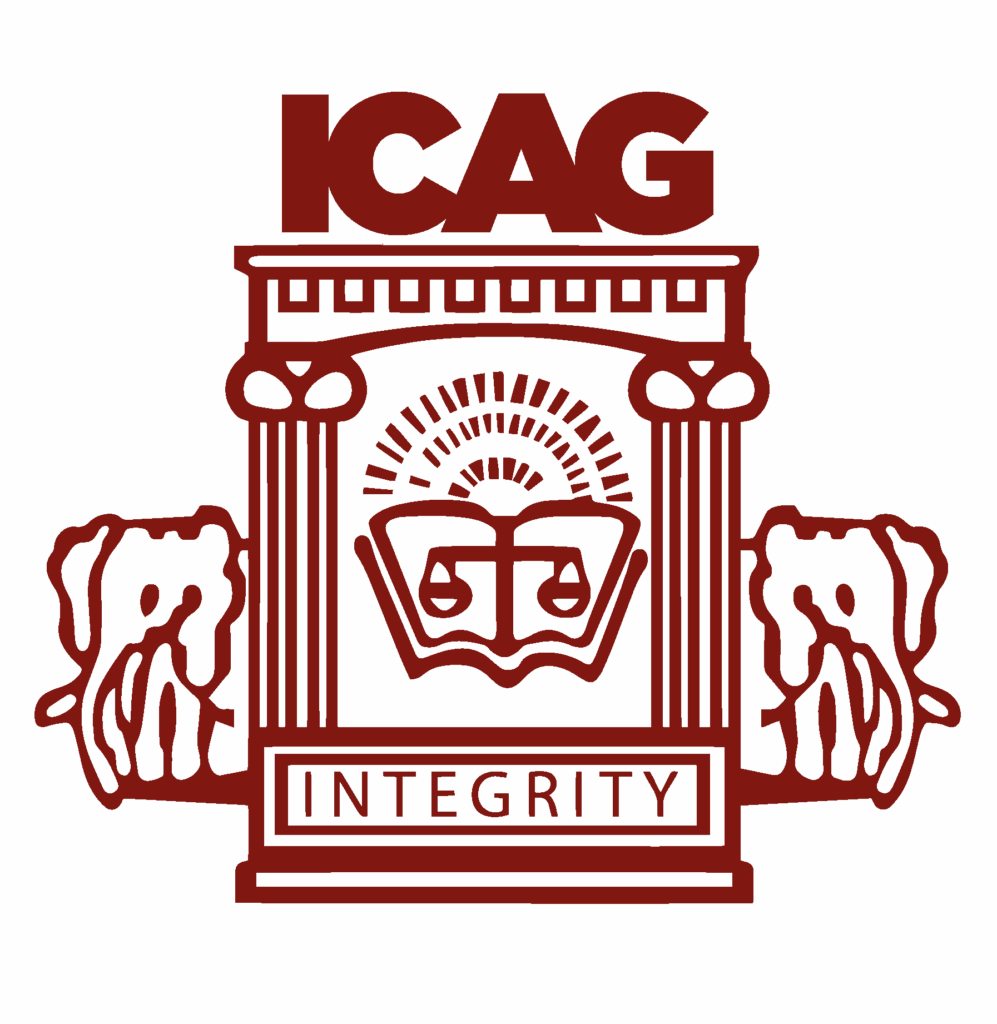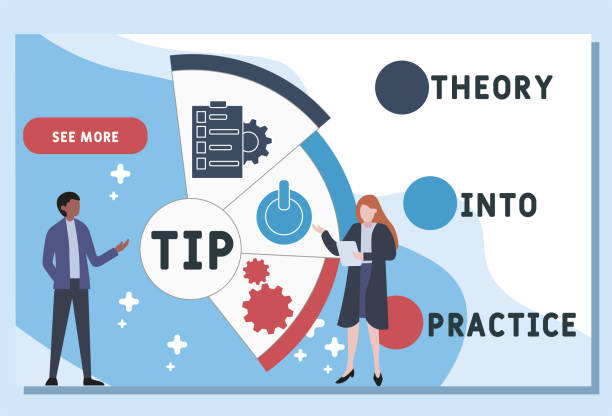If you’re diving into the world of professional accounting in Ghana, grasping the Levels, Knowledge, Application, and Professional within the ICAG qualification sets you up for success right from the start. This article breaks down these core stages, explaining how they form the backbone of becoming a chartered accountant through the Institute of Chartered Accountants of Ghana (ICAG). Whether you’re a fresh high school graduate or a working professional eyeing a career shift, understanding this progression helps you map out your path effectively. For those facing hurdles in specific subjects along the way, our related guide on How to Tackle Challenging ICAG Subjects offers practical strategies, from mastering complex topics like taxation to building study habits that stick—it’s a solid companion piece for overcoming common pitfalls in the qualification process.
Overview of the ICAG Qualification Structure

The ICAG qualification stands as a rigorous yet rewarding journey toward becoming a certified chartered accountant in Ghana. It aligns with international standards, ensuring graduates can compete globally while addressing local business needs. Structured into three distinct levels: Knowledge, Application, and Professional, this program emphasizes progressive learning. You start with basics, move to real-world applications, and culminate in advanced strategic expertise. This setup isn’t arbitrary; it mirrors how accountants evolve in their careers—from recording transactions to advising on corporate strategies.
ICAG revamped its syllabus in 2024, effective through 2029, to incorporate modern elements like digital tools, sustainability reporting, and public sector nuances.icagh.org With 14 papers spread across the levels, the qualification demands dedication, but it opens doors to roles in auditing, finance, taxation, and beyond. Entry isn’t overly restrictive; high school leavers with credits in English and math can jump in, while degree holders often snag exemptions to accelerate their progress.icagh.org
What makes ICAG stand out? It’s not just about passing exams—it’s about building competencies that employers value. The institute ensures that each level builds on the last, creating a seamless flow. For instance, concepts introduced in the Knowledge level get tested in practical scenarios at the Application stage, then refined for complex decision-making in the Professional realm. This structure fosters not only technical skills but also ethical judgment and adaptability, crucial in today’s fast-changing financial landscape.
The Knowledge Level: Laying the Groundwork

At the heart of the ICAG journey lies the Knowledge level, where everything begins. Think of it as constructing a sturdy base for a skyscraper—you can’t skip it without risking collapse later on. This initial stage introduces fundamental concepts in accounting and business, ensuring you’re fluent in the language of finance before tackling trickier applications.
Key Subjects in the Knowledge Level
Four core papers define this level, each designed to impart essential principles without overwhelming complexity.icagh.org
- 1.1 Financial Accounting: Here, you learn to record transactions using double-entry bookkeeping, prepare basic financial statements, and analyze simple ratios. It’s all about understanding how numbers tell a business’s story.
- 1.2 Business Management and Information Systems: This paper covers organizational structures, business environments, and basic information systems. You’ll explore how data flows in companies and why effective management matters.
- 1.3 Business and Corporate Law: Dive into legal frameworks, from contract obligations to company governance. It equips you with knowledge of ethics, employment laws, and crisis management implications.
- 1.4 Introduction to Cost & Management Accounting: Focus on costing elements, budgeting basics, and variance analysis. This sets the stage for decision-making tools used in higher levels.
These subjects aren’t isolated; they interconnect. For example, legal insights from 1.3 enhance your grasp of ethical reporting in 1.1. Exams test recall and basic application, keeping scenarios straightforward to build confidence.
Aims and Main Capabilities Developed
The primary goal? To create a solid framework for future learning. ICAG wants you to explain concepts clearly, apply them in simple contexts, and recognize when issues escalate beyond basics.studocu.com Capabilities include correcting accounting errors, describing business models, and applying forecasting techniques. By the end, you’re not just memorizing—you’re starting to think like an accountant.
Transitioning smoothly, this level emphasizes core competencies that prevent common beginner mistakes, like misclassifying costs or overlooking legal compliance. It’s bursty in its approach: one moment you’re delving into debits and credits, the next you’re linking them to real business decisions. And hey, if you’re wondering about practical tools, platforms like Knowsia offer question banks and AI-powered practice that align perfectly with these foundational topics, making prep less of a grind.
Entry Requirements and Exemptions at This Stage
Getting started is accessible. If you’ve got a WASSCE with six credits including English and math, or equivalent qualifications like a diploma, you’re in.icagh.org Exemptions sweeten the deal—holders of an HND in Accountancy bypass all Knowledge papers, while university students in accounting programs might skip several based on transcripts.icagh.org This personalization keeps the qualification inclusive, allowing experienced folks to fast-track without redundant study.
However, exemptions aren’t handouts; you must demonstrate equivalent knowledge. ICAG reviews applications carefully, ensuring everyone meets the same standards eventually. This level typically takes six months to a year, depending on your pace and exemptions.
The Application Level: Bridging Theory to Practice

Once you’ve nailed the basics, the Application level kicks things up a notch. Here, ICAG shifts focus from “what” to “how,” pushing you to use knowledge in realistic, sometimes messy scenarios. It’s like moving from classroom drills to on-the-job simulations—exciting, challenging, and incredibly practical.
Subjects Covered in the Application Level
Six papers await, each building directly on Knowledge foundations.icagh.org
- 2.1 Financial Reporting: Apply IFRS standards to prepare entity and group statements, then analyze them for insights.
- 2.2 Management Accounting: Dive into budgeting, variance reports, and decision techniques, including public sector applications.
- 2.3 Audit and Assurance: Learn risk-based auditing, evidence gathering, and internal audit roles.
- 2.4 Financial Management: Assess funding options, appraise investments, and manage risks like currency fluctuations.
- 2.5 Public Sector Accounting and Finance: Master IPSAS for government reporting—best tackled after 2.1.
- 2.6 Principles of Taxation: Cover Ghana’s tax system, from individual liabilities to VAT and customs.
These aren’t just extensions; they introduce complexity, like group consolidations in 2.1 or ethical dilemmas in audits. You’ll handle data with uncertainty, mirroring real audits or financial planning.
Aims, Capabilities, and Skill Development
ICAG aims to hone your ability to apply concepts in varied contexts, identifying issues that need expert input.studocu.com Capabilities range from interpreting financial statements to using appraisal techniques for investments. You learn to evaluate information quality, draw conclusions under pressure, and advise on short-term decisions.
This level bursts with creativity—imagine simulating a budget crisis or auditing a tech firm. Transitional phrases aside, it’s where theory meets action; for instance, Knowledge-level costing evolves into advanced variance analysis here. Passive voice creeps in naturally: skills are developed through case studies, while active engagement ensures retention.
If you’re teaching or learning on the side, Knowsia lets you share notes or access expert content, turning Application challenges into opportunities. Exemptions continue: a bachelor’s in accounting might waive 2.3 and 2.6, speeding you toward Professional status.icagh.org
Progression and Prerequisites from Knowledge
You can’t leap here without completing or exempting Knowledge papers—it’s a prerequisite for coherence.icagh.org Progression feels organic; basic ratios from 1.1 inform 2.1 analyses, while law from 1.3 underpins 2.3 ethics. This build-up prevents overwhelm, allowing bursty insights as connections click.
Time-wise, expect 9-12 months, with exams twice yearly. Success rates improve with practice, so tools like past questions on Knowsia prove invaluable.
The Professional Level: Mastering Advanced Expertise

Reaching the Professional level means you’re on the cusp of full qualification. This pinnacle stage demands judgment in complex, ambiguous situations—think advising on mergers or navigating tax disputes. ICAG reserves this for those ready to lead, blending technical prowess with strategic thinking.
Core Subjects in the Professional Level
Four intensive papers cap the program.icagh.org
- 3.1 Corporate Reporting: Handle advanced IFRS, sustainability reporting, and group reconstructions.
- 3.2 Advanced Audit and Assurance: Tackle specialized audits, governance, and emerging issues like cybersecurity.
- 3.3 Advanced Taxation: Advise on international tax, disputes, and planning strategies.
- 3.4 Strategic Case Study: Integrate everything in a holistic exam, simulating board-level decisions.
These demand synthesis; 3.4, for example, pulls from all prior levels in a case format.
Aims and Advanced Capabilities
The aim? Cultivate professional judgment for high-stakes scenarios, recognizing when to seek specialists.studocu.com Capabilities include critical evaluation, business valuation, and advising on ESG factors. You’ll exercise discretion, evaluate alternatives, and communicate findings persuasively.
Burstiness shines here—sudden “aha” moments from integrating levels. Interjections like “wait, that tax rule applies here!” become common. Active voice drives advice: you recommend strategies, while passive allows reflection: judgments are formed through analysis.
Preparation and Ethical Considerations
Prerequisites include clearing Application papers, ensuring readiness.icagh.org Prep involves ethics training and practical experience, often via internships. ICAG emphasizes integrity, aligning with global standards.
This level takes 6-9 months, culminating in membership upon passing and meeting experience requirements.
Benefits of Navigating the ICAG Levels

Progressing through these levels—Knowledge, Application, and Professional—yields more than a certificate. You gain versatility: Knowledge equips for entry roles, Application for mid-level positions, and Professional for leadership. Employers value ICAG holders for their blend of local insight and international competence.openknowledge.worldbank.org
Economically, chartered accountants in Ghana command competitive salaries, often starting at GH¢5,000 monthly and scaling up. Globally, it facilitates mobility—many ICAG pros work in the UK or US. Personally, the journey builds resilience; tackling Application complexities prepares you for real-world volatility.
Moreover, the structure encourages lifelong learning. With updates like 2024’s tech focus, you’re future-proofed. Colloquially, it’s a grind worth the glory—friends in the field often say, “It tested me, but now I’m unbreakable.”
Leveraging Resources for ICAG Success

No one conquers ICAG alone. Platforms like Knowsia empower you at every level. At Knowsia, we believe education empowers without limits, offering AI tools, past questions, and expert content for ICAG prep. You can learn smarter with tailored resources, teach others by sharing insights, and even earn through contributions or referrals.
For Knowledge basics, dive into our question banks; for Application practice, simulate cases; for Professional strategy, access mentor-led sessions. It’s all on one platform, blending learning, teaching, and earning seamlessly.
External resources help too. Check ICAG’s official site for updates, icagh.org or explore affiliations like with Central University for exemptions.central.edu.gh
Conclusion: Your Path to ICAG Mastery
In wrapping up, the Levels, Knowledge, Application, and Professional form the essence of ICAG qualification, guiding you from novice to expert. This structured approach ensures you’re not just qualified but capable, ready to contribute meaningfully. Start with Knowledge’s foundations, apply them robustly in the next stage, and master strategy at the top—it’s a progression that transforms careers.
If challenges arise, remember resources like our guide on tackling tough subjects are a click away. Embrace the burstiness of learning, use transitions to connect concepts, and mix voices for balanced thinking. Ultimately, ICAG isn’t just a qualification; it’s your ticket to influencing Ghana’s financial future. Dive in, stay persistent, and watch your expertise soar.

